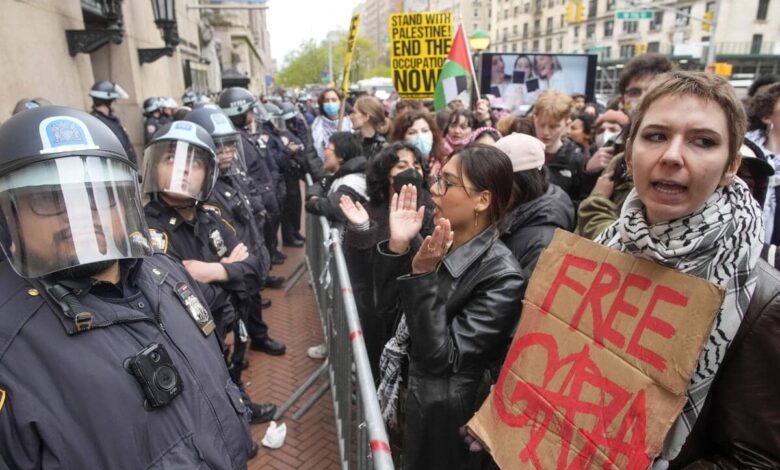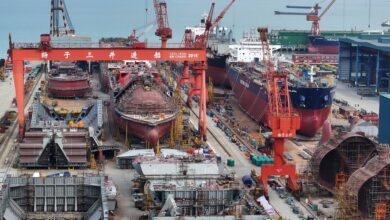
A pro-Palestinian protest at Columbia University turned tense as police presence intensified and arrests were made. Student demonstrators’ occupation of a building entered its 18th hour, capturing students’ attention across the campus. Photos and videos circulated, revealing police parking at least seven jail buses south of the campus.
New York police officers guarded the Manhattan campus gates, visible through the railings, while surveillance drones hovered in the dusk sky. The protest centered on Columbia’s financial ties to Israel’s Gaza war, with a tent encampment established by students on the lawn.
Administrators summoned student leaders for a Zoom meeting, but negotiations proved unsuccessful. In response, police swiftly arrested dozens of individuals, including students, alumni, and employees, on charges of burglary and trespassing. Protest encampments were cleared out, mirroring similar demonstrations at colleges worldwide.
The account of the night’s events is based on interviews with student protesters, professors, bystanders, and Reuters journalists. The protesters, donning Columbia-logo sweatshirts and black balaclavas, occupied Hamilton Hall and interacted with supporters below.
As tensions escalated, police cleared the area, ordering students into a dormitory and sealing the doors. Those without dorm access faced arrest if they ventured outside. The police operation drew criticism and concern from politicians and Jewish students.
Overall, the protest ended with arrests and a heightened police presence on the Columbia University campus, leaving a lasting impact on the student community and igniting debates surrounding free speech and activism.



